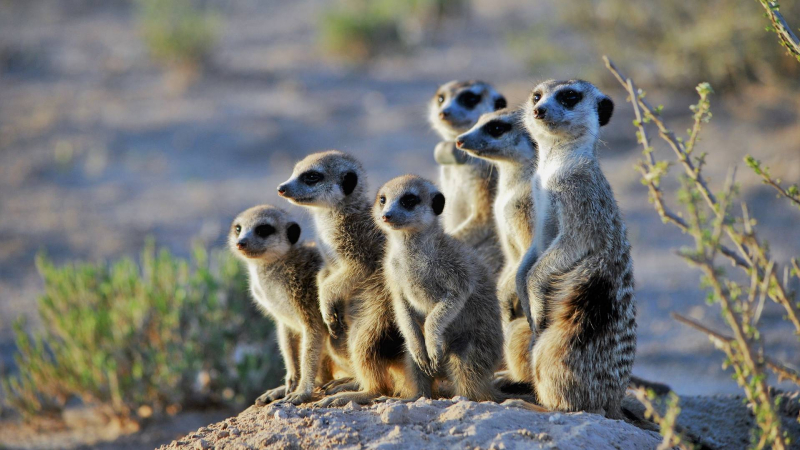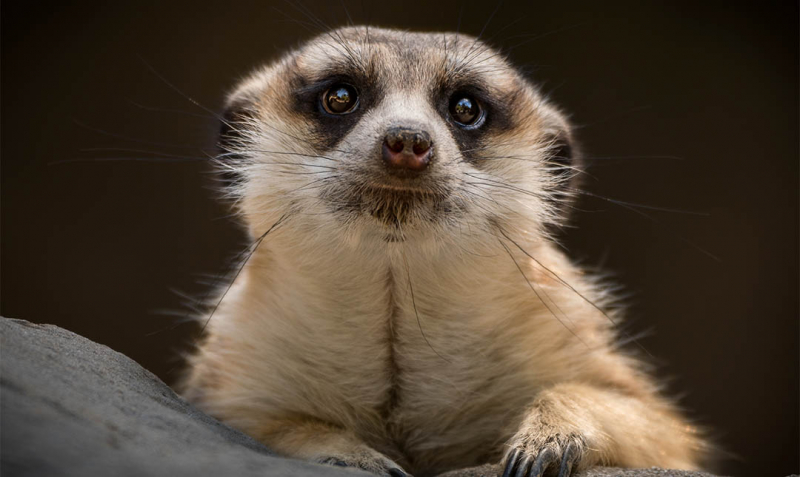Meerkats
As a social animal, meerkats form packs of two to thirty individuals, with almost equal numbers of each sex, as well as numerous family units made up of partners and their young. In a pack, duties like caring for puppies and keeping an eye out for predators are rotated among the members. Meerkats are a cooperative breeding species; normally, in a pack, the dominant 'breeders' give birth to young, while the nonbreeding, inferior 'helpers' take good care of the young. Similar to the breeder-worker divide in ants, this division of labor is not as clearly defined as it is in specialized eusocial species. A distinct dominance hierarchy also exists among meerkats, with older animals having a greater social standing.
Meerkats are small, cute animals who attack scorpions with little effort. They are intelligent and have evolved a special hunting technique through the years that they pass on to their offspring. A meerkat will watch the scorpion's activities and wait patiently before attacking it. The meerkat will wait once again until there is a chance to attack the scorpion's tail after recognizing the scorpion's motions. This will stop the scorpion's poison from stinging someone. Meerkats are very immune to the venom of scorpions and can withstand their attacks, in addition to having a clever hunting technique.














